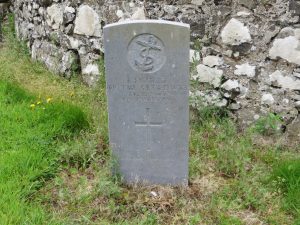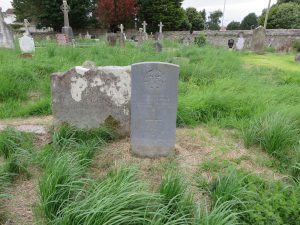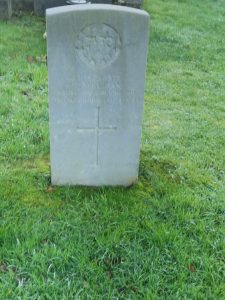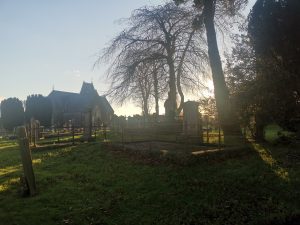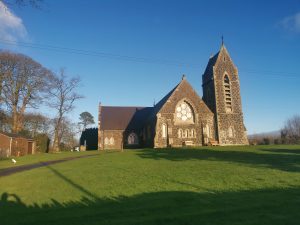Shaxton, T (Thomas)

Thompson, R H (Reginald Herbert), Shaxton, T (Thomas), Proctor, F (Frank), Lawton, E J (Ernest James), Holmes, G (George), Hall, A E (Albert Edward)
Private Thomas Shaxton enlisted in Exeter and was the son of Mr. and Mrs. J. Shaxton, of Shirwill Village, Barnstaple, Devon. He served in the Devonshire Regiment, 3/4th Battalion. They had moved to Ireland on the 18th of April 1918.
Thomas passed away suffering from cerebral spinal meningitis[1] for just thirty-six hours.
It is possible though that he may have died from the 1918 outbreak of the Spanish Flu pandemic.[2]
The Spanish flu is rather deceiving as it did not originate in that country of its namesake. Spain though was the first country to openly report on the pandemic due to its neutrality in the war. Therefore, the illness received its name by this association.
The outbreak began around January 1918 and ended at the end of 1920. There were three major outbreaks, each deadlier than the previous. Great efforts were made to suppress the news, but so many people were affected that it became pointless as the flu crept through the armies and into the villages, towns, and cities of Europe. There were no vaccines to protect against this flu virus or the infections, no antiviral drugs to treat it and no antibiotics to treat secondary bacterial infections like pneumonia. The only tools that authorities could implement was the promotion of good personal hygiene, isolation, and quarantine of the ill, along with the closures of public places.
There are several servicemen in the City Cemetery who possibly died of the illness, most of whom were diagnosed with meningitis, flu, or pneumonia. It especially affected young adults.
The Dorsetshire Regiment, 4th Reserve Battalion was formed during March 1915 in Exeter, during September at Hursley Park near Winchester, England. They absorbed the 3/5th and 3/6th Battalions and remained in England until April 1918 when they went to Ireland mainly serving in Belfast, Londonderry and Clonmany.
After Private Shaxton’s death during 1920 his regiment fired upon protestors in the City of Londonderry causing riots throughout the city. Between April and June forty people in the city were killed. The battalion then began fighting beside a local militia called the UVF[3] as well as the RIC[4]. The Police however did not agree with this, and many threatened to resign over their behaviour.
He was not eligible for any medals as he never left the UK or entered a theatre of war. Unfortunately, no further information is available.
Date of Death: 05/07/1918 (Aged 18)
Service: Private, Devonshire Regiment, 4th Battalion.
Service Number: 25399
Burial Location: Londonderry (or Derry), City Cemetery, G. C. 2.
[1] Cerebral spinal meningitis in an infection of the thin covering of the brain and spinal cord.
[2] Spanish Flu: 50 to 100,000,000 deaths.
[3] The U.V.F. is the Ulster Volunteer Force. A Protestant Militia based in Ireland which was formed in 1912.
[4] The R.I.C. is the Royal Irish Constabulary, created in 1816 and disbanded during 1922, when the Royal Ulster Constabulary was formed.
